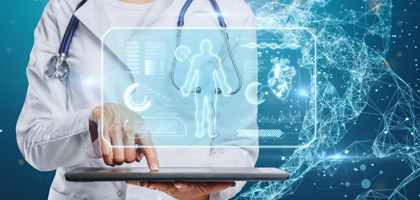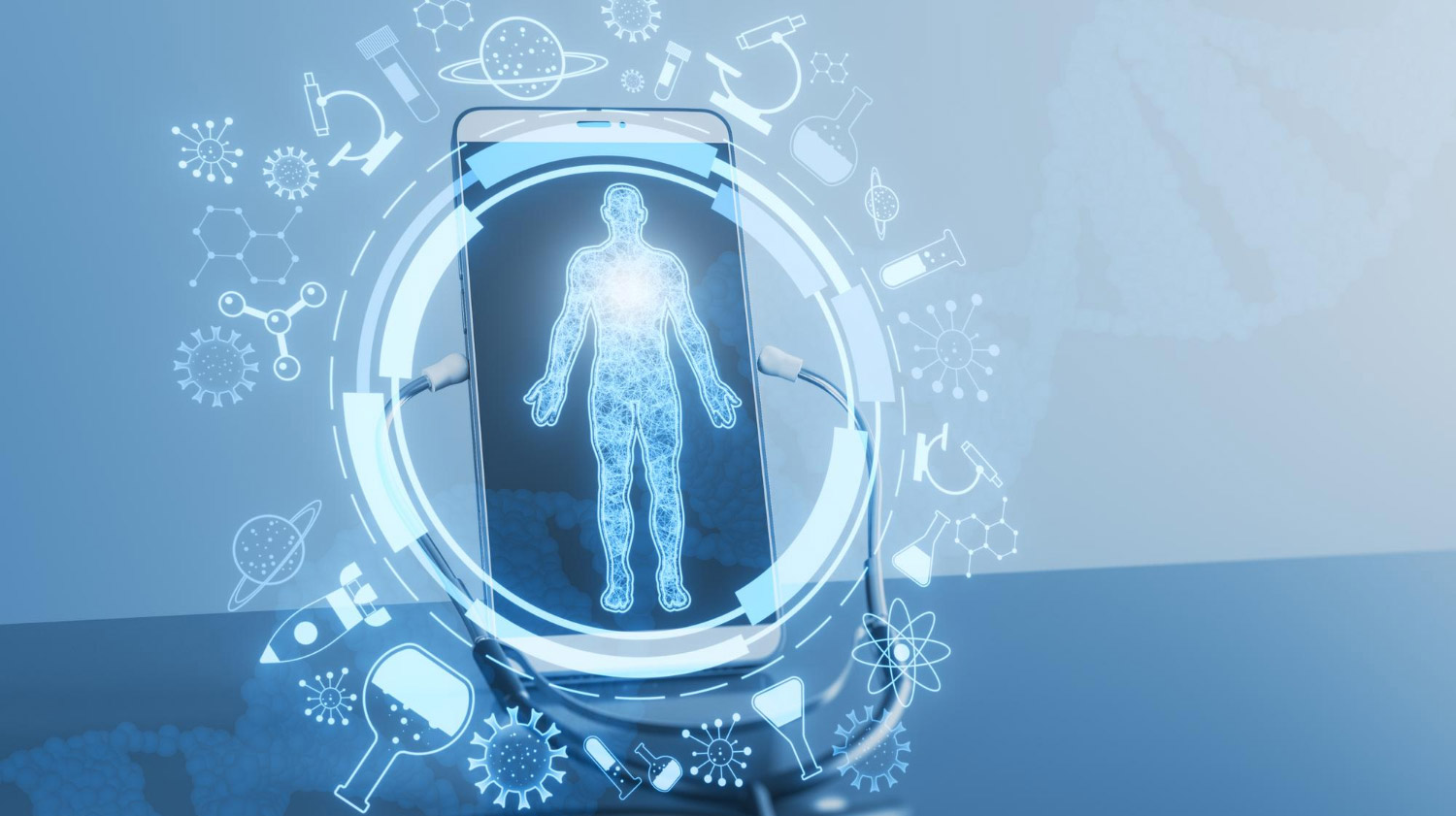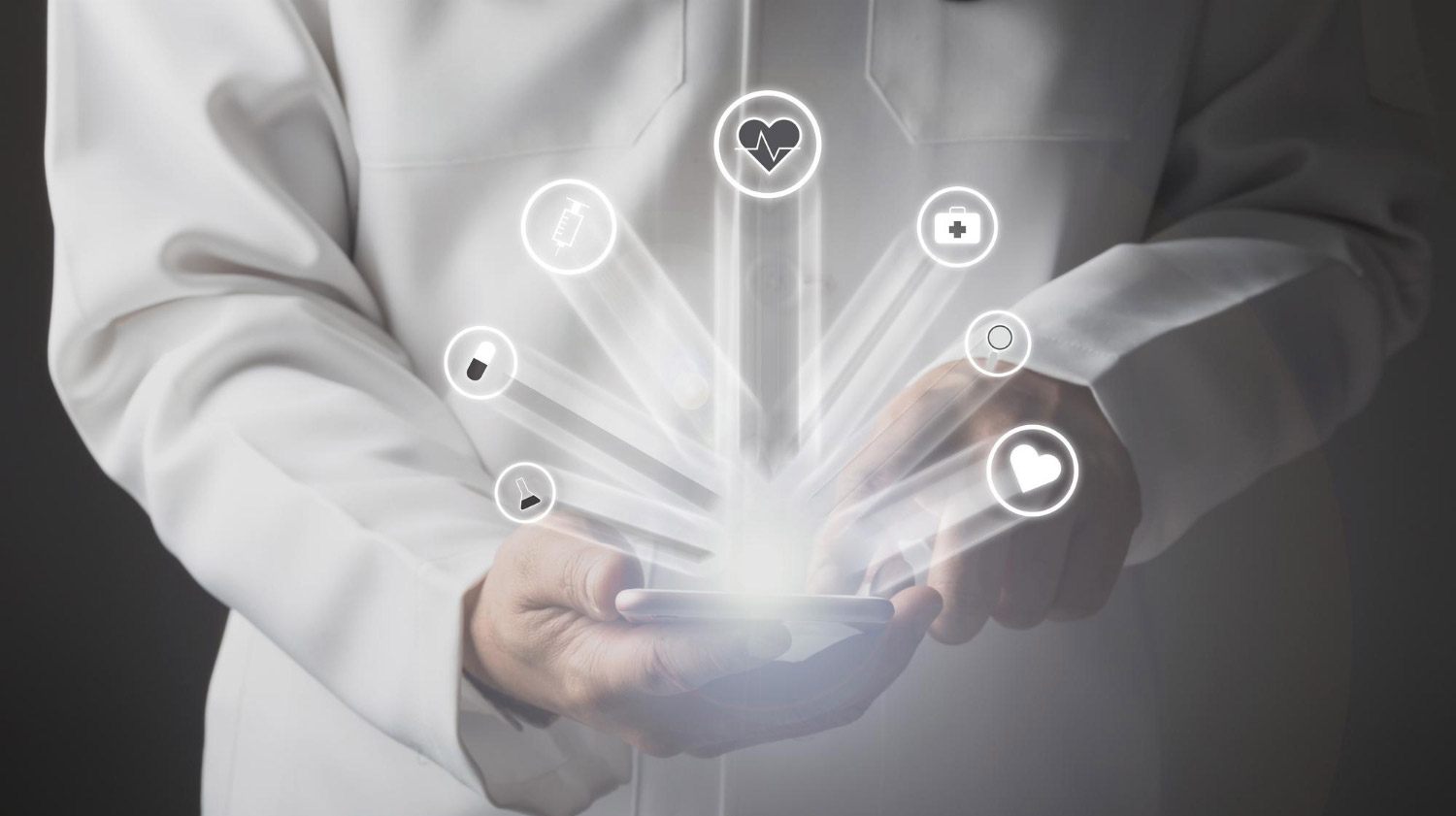
Blog
The Future of Personalized Healthcare Technology
Personalized healthcare is a rapidly evolving term within today’s modern healthcare ecosystem. This term refers to the customization of healthcare treatments and services based on individual needs, preferences, genetic profiles and other key factors such as lifestyle, environmental influences and medical history. It focuses on creating tailored health solutions to improve patient outcomes. Personalized healthcare requires personalized healthcare technology which uses data and innovative tools to offer more precise and efficient care. In this blog, we explore personalized healthcare technologies, their benefits, current limitations in healthcare personalization and future trends.
Examples of Personalized Healthcare Technology
Examples of personalized healthcare technologies include artificial intelligence (AI), machine learning (ML), telemedicine, wearable devices, health monitoring tools, personalized medicine, genetic testing, health data analytics, precision medicine, virtual health assistants, electronic health records (EHRs), genomics and bioinformatics, some of the leading examples in the field.
- EHRs: These records are digital versions of paper-based personal health information like medical history, diagnoses, treatments and so on. EHRs can be easily shared among healthcare professionals, providers and other relevant stakeholders.
- AI and ML: These technologies analyze personal health data to predict potential health risks and diseases and recommend personalized treatment options.
- Telemedicine: This technology is remote healthcare delivery via electronic information and telecommunication technologies. Telemedicine offers consultations tailored to a patient’s specific health needs.
- Wearables and Health Monitoring: Devices like smartwatches and fitness trackers monitor real-time health data and offer personalized health insights and recommendations for a healthy lifestyle.
- Personalized Medicine: This emerging practice includes the analysis of genetic data through different technologies to provide personalized treatment plans based on an individual’s genetic profile.
- Health Data Analytics: This is the process of using advanced algorithms and data analysis techniques to interpret vast amounts of healthcare data to improve decision-making, treatment plans and outcomes.
- Virtual Health Assistants: As AI-powered tools, these assistants interact with people through text or voice and offer personalized health advice, reminders and assistance.
Benefits of Personalized Healthcare Technology
Personalized healthcare services and technologies offer numerous benefits; they improve patient satisfaction, accelerate recovery times, enhance disease prevention, data management and chronic disease management and increase accessibility. Moreover, better medication adherence, personalized care plans, improved quality of life, targeted therapies, early diagnosis, efficient utilization and reduced hospital readmissions are achieved through personalized healthcare. These technologies’ other benefits are precision in medical interventions, better health monitoring, optimized treatment protocols, customizable health solutions, proactive disease management and enhanced health literacy and education. In this section, we explain five key benefits derived from the patient-centric approach of personalized healthcare, including better treatment outcomes, fewer side effects, prevention, cost reduction and patient engagement.
Improved Treatment Outcomes
Personalized healthcare technologies tailor treatment plans based on individual characteristics. These treatments ensure higher success rates by addressing the unique needs of each patient, leading to better treatment outcomes and enhanced quality of life.
Fewer Side Effects and Human Errors
Personalized technologies offer more accurate insights which eliminate human error and minimize side effects. These insights identify and avoid therapies and medication which might present adverse reactions and various health risks.

Enhanced Preventive Care
Personalized healthcare solutions and technologies analyze genetic and physiological data effectively. The analysis allows the early detection of potential health risks and diseases. These technologies offer preventive measures for genetic, behavioral and metabolic conditions.
Cost Efficiency
Personalized approaches enable health professionals to determine which treatments are more likely to be effective for each individual, preventing unnecessary treatments. This decreases healthcare costs associated with ineffective treatment plans over time.
Greater Patient Engagement
In personalized healthcare settings, patients are given more control over their health management. This control encourages them to actively participate in their care, leading to more informed decisions and responsive healthcare experience.

Current State of Personalized Healthcare Technology
Although there are a lot of benefits of personalized healthcare services and technologies, there are some challenges and limitations to address, too. The top challenge is about individuals’ data privacy concerns. The collection, storage and utilization of sensitive health information can result in security breaches and privacy violations. Although most people hesitate to share their personal health data for customized treatments, these challenges are definitely solvable with proper security measures and clear privacy protocols.
In addition to data privacy and security concerns, another challenge is the lack of standardization. This causes some issues about the integration of personalized healthcare technologies across healthcare systems. With advanced solutions like our Terminology Server, issues related to standardization can be effectively addressed, enabling smoother interoperability.
Personalization in healthcare can involve advanced technologies which might be very expensive. Additionally, there can be limited access to these technologies, so high costs and limited availability and accessibility are other challenges. As these technologies evolve, costs are expected to decrease and accessibility will improve, making personalized healthcare more widely available.

Future Trends in Personalized Healthcare Technology
In the future, AI will continue to play a significant role in personalizing healthcare, with more advanced algorithms for early diagnosis and treatment. Also, developments in genetic research will lead to more precise medication, tailored to individuals’ genetic profiles.
Mobile applications, in conjunction with AI, will empower individuals to proactively monitor their health, facilitating earlier detection of anomalies and promoting healthier lifestyles. These apps will continue to support health management on a personal level and ensure treatments align with patients’ needs.
In addition to these, the future will see an increase in the use of wearable devices, such as smartwatches and biosensors, integrated with AI and cloud computing to provide real-time health monitoring. Virtual health assistants, powered by AI, will help individuals manage their health by providing personalized recommendations while advanced robotics and telemedicine will enable remote surgeries and consultations. Moreover, 3D printing technologies will enable the creation of personalized medical devices, further enhancing treatment precision.

Tiga’s Personalized Healthcare Technologies
As pioneers in the healthcare IT landscape, we lead the way in offering innovative personalized and digital health information technologies that empower patients, improve clinical outcomes and streamline healthcare operations for providers. Our products contribute to personalized patient care by using real-time data and emerging technologies like AI. For instance, Mobithera, as our remote physiotherapy and ergotherapy application, enables physiotherapy and ergotherapy exercises to be performed through smartphones and tablets. This app provides personalized care plans and AI-assisted analysis, leading to more effective and successful treatment outcomes. By offering the ability to exercise anytime and anywhere through mobile devices, it is the key to increasing patient engagement and motivation.
In addition to the Mobithera, we maintain our research and development (R&D) efforts on personalized health services. Our specific R&D projects focus on personalization in healthcare to improve patient experience and support the creation of a healthy lifestyle. For example, our ExerNeck offers personalized and gamified exercises to reduce neck pain while our XrCycling transforms bike workouts into effective, personalized and gamified experiences through AI and VR integration. Moreover, our My Health Coach, which is integrated with Personal Health Record (PHR) systems, sends personalized health recommendations and alerts for early treatment by analyzing individuals’ electronic health records (EHRs) and their specified family members’ health data. Through Mobithera and our R&D projects along with our other innovative information technologies, we enhance the role of patients in their own health management while enabling healthcare professionals to plan treatments efficiently and precisely.

As Tiga Healthcare Technologies, we believe that the future of healthcare is highly personalized and digitalized. Personalized technologies have immense potential for improving patient care and outcomes along with streamlining the workload of health professionals and eliminating their administrative burdens. With our patient-centered products, we consolidate the benefits of personalized healthcare.
Let’s shape the future together by embracing personalized healthcare technologies, as always!










